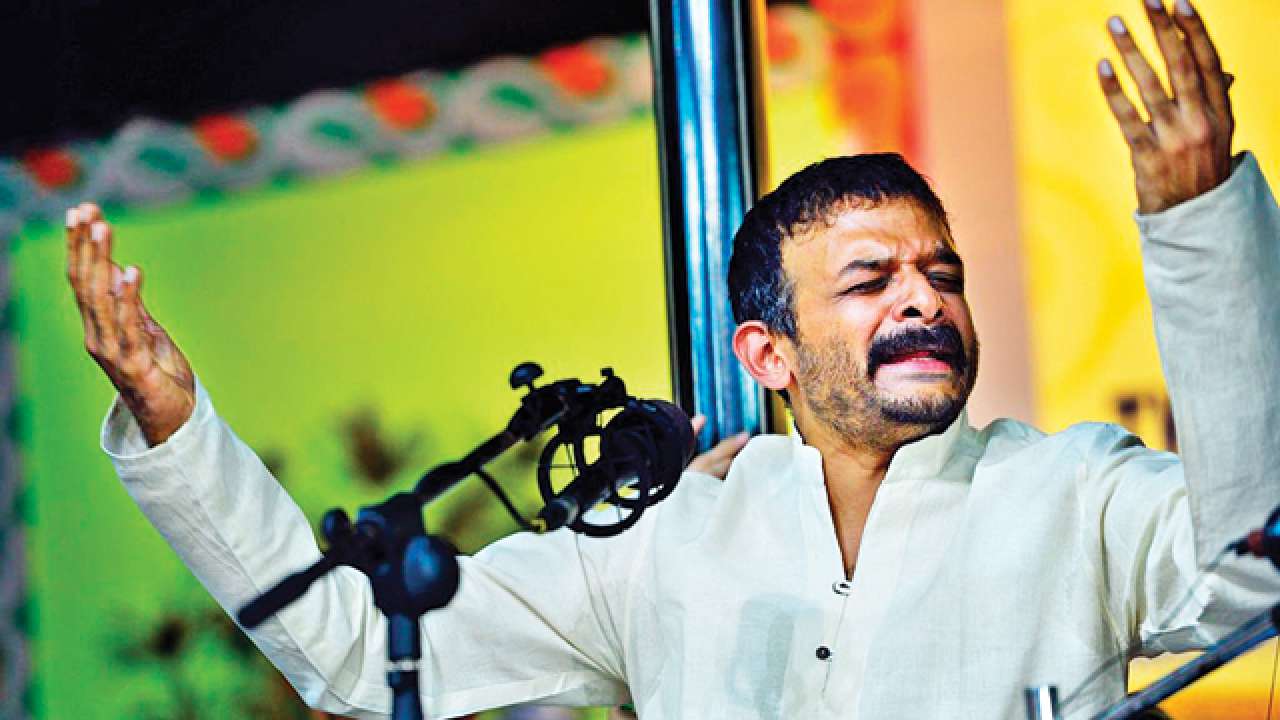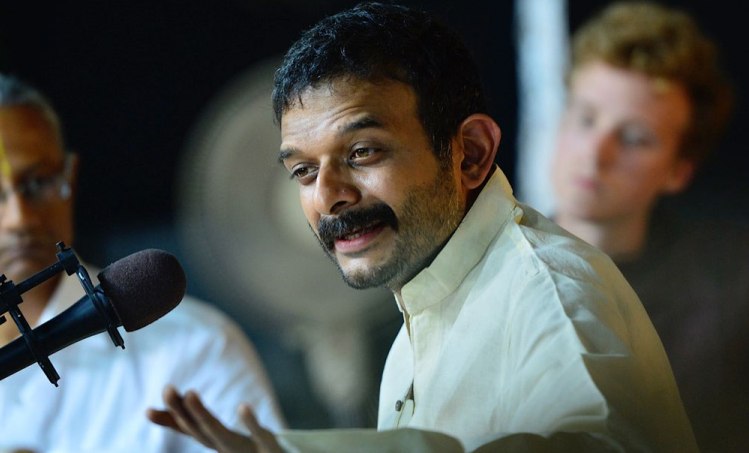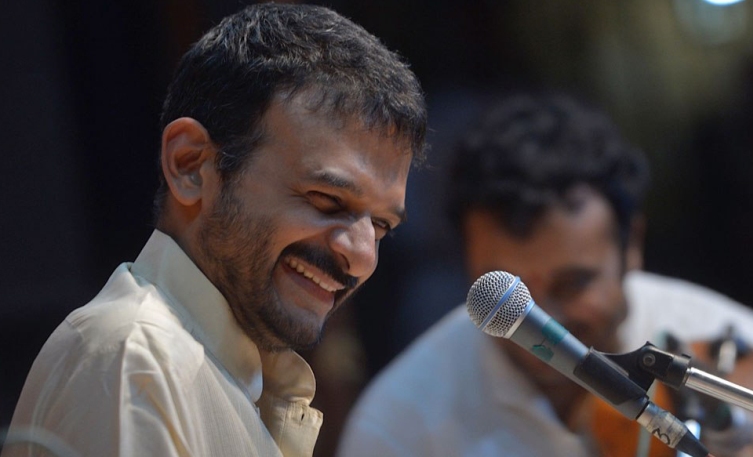
Your reaction on being conferred the Indira Gandhi Award (IGA) for National Integration for 2015-16.
I'm surprised I was considered. All I've done is, begin a serious conversation on issues of identity, arts, dominance, access, aesthetics, marginalisation, sharing and dissent using music, writing, speaking and by being a volunteer in socio-art projects which take on these complexities and challenge various hegemonies. As part of the process, I've also tried to be as open about my own limitations, because I'm also personally battling all those issues I raise. This is as much a personal endeavour as a public one.
I don't have a response to this question.
Awards are difficult for me. I need to think a lot before I agree to accept one. I'm lucky to have some wonderful friends from across the social spectrum who advice me when (I'm) in a conundrum. Awards need to be accepted with care because we need to understand their intent and also look within before we say yes. To me an award that represents a deeper quality in its purpose makes a difference. It is not just about me receiving the award, it is also about what it means in the larger context and the message it sends. An award should spur discourse.
I don't belong to any political party. In my writings I've been critical of all political parties including the Congress. Neither do I necessarily agree with all decisions made by the late PM Indira Gandhi, especially not her imposition of Emergency (1975).
But there is no doubt in my mind that under the present dispensation, India is going through a very delicate, dangerous phase. It is in this context that national integration becomes a very important thought. We've forgotten its spirit and this award brings that back into focus. At a time we're being deliberately divided by religion and caste, reiterating this idea is essential. By accepting the award, I'm only playing the role of a catalyst.

I didn't know Gauri Lankesh personally. But the day I heard about her assassination I was deeply disturbed and put up the picture. Just the crassness of the act numbed me. This was not the first time such a killing was occurring, but for me personally it felt like a tipping point. What made everything worse was the sheer grotesqueness of the messages that were doing rounds in the social media. It felt like we are living in William Golding's Lord of the Flies.
I don't think there was really a moment of epiphany. It happened through a long process of reflection. It began with questions about the history of my own art – Carnatic music. I was trying to understand my own aesthetic antecedents but soon found myself stumbling upon larger philosophical questions. What is beauty? This soon enlarged into thoughts on conditioning, discrimination, exclusion, ownership and rights. Ever since the churning hasn't stopped.
Well! It was expected. I knew that the hardcore Carnatic world will be uncomfortable with these questions. But I wasn't the first to raise them. Those who did so before came from outside the Carnatic stage and were hence ignored. The problem with me, was that I'm an insider. Some in the establishment have very little to do with me now, but there are many with whom I engage. I do still sing in almost all Chennai sabhas, except The Music Academy. I believe it is important for me to remain within the Carnatic sphere and engage with the people within. It is easy to walk out and find your own space. But that to me is the easy way out. As much as I work outside Carnatic music, it is as important that I work with people inside and try to move things. And I do see change happening, albeit slowly.
I'm the face of the Urur Olcott Kuppam festival only by virtue of who I am. This includes my caste, class and English speaking upbringing. This is the truth. In reality, the festival is driven by many individuals who belong to the village and from across Chennai. The initial idea was simple, even naïve. I wondered whether it'd be possible to hold a December festival in a space that we do not associate with the arts and through the process invert perceptions of art, space and access. I worked with Nityanand Jayaraman, a well-known environmental activist, and Saravanan of Urur Olcott Kuppam. It has been a learning process.
It is now a conversation between diverse people through the arts. The arts are our way of bringing people together,changing perceptions, allowing each one to enter the other's cultural space shedding all inhibitions. The festival happens in the village, on stage, on the beach, on public transport busses and on railway stations. It hopes to equalise people through the art they practice and celebrate.
I don't say everyone must follow what I'm doing. But I do think it is possible to involve oneself in projects that take forward thoughts that we might articulate in writing. In fact when we move into practice there is greater clarity and understanding. Many times we have to re-learn or change our older positions.
There is never going to be a point of 'enough.' Human beings are designed to control and oppress. Therefore this is going to be long drawn battle, may be there is no end. But I'm convinced if we trigger personal transformations among diverse people, society will at least become more aware of these realities. There will be less denial. That itself is a great step forward. We mightn't eliminate exclusion but if we can create a society that remains acutely aware of marginalisation of every kind including cultural, we'll be better people.
Credit for that goes to my school and home. I studied in The School KFI, a school run by the J Krishnamurti foundation where questioning and learning were natural. My home environment was very similar. My mother runs a school called Vidya Vanam for Tribal and underprivileged children in a small village called Anaikatti in Tamil Nadu. So you could say being proactive is normal for me.
Without doubt. It is sad that in India public personalities rarely voice their opinion.They remain remote and self-serving. This has to change. People who have a voice must speak up and participate in public discourse. In fact it is their responsibility to do so.
I understand where this criticism is coming from and may even agree with it. But I want to make a couple of things clear. I'll never understand what it means to be a Dalit and I can't even imagine the struggles it involves. I'll never usurp or appropriate their voice. At the same time I'm convinced we need voices from the Brahminical class. I am Brahmin but I reject that identity. And yet, I'm still grappling with myself. It is important that I begin this debate within my own community. Transformations have to happen on both sides and hence I won't stop this dialogue. I do agree many Dalit voices need to be recognised and awarded and it is indeed unfortunate this does not happen. Again, a reflection of our society. But I'm no poster boy. I'm only taking forward already established discourses.

These two tours remain very close to heart and have meant much more than any other travels I've undertaken. They've transformed my understanding of people, cultures and what it means to fight for one's own dignity, political right and place in society. There are also differences in these two journeys since complexities involved in the conflicts are different and our role. In Northern Sri Lanka, we were presenting music, culturally as much theirs as ours. There was an umbilical connection. We continued the engagement with art festivals for the next two years.
It is difficult to measure in quantitative terms how such cultural conversations help. Certainly, they reaffirm people's sense of pride and cultural relevance. This is especially important for those driven to the very edge of living. In conversations during our tours and festivals I remember meeting many who felt elated that art had come back to their region, that they could celebrate and rejoice in music and dance sans inhibition.
They were different. The tour was conceived by Professor David Shulman, the renowned scholar, linguist, activist who works closely with Palestinian Bedouins. The ideas was to use music from a different land (India) to be a common platform for conversation. Originally, we had hoped to have a concert in Ramallah and Jerusalem. But the deep political divisions made that impossible. Instead, we performed in Israeli-occupied East Jerusalem, Jaffa and West Jerusalem. We also travelled to the Jordan valley and spent considerable time with the Bedouins. The audience at the concerts were made up of Israelis and Palestinians. And in a couple of concerts while speaking, David did raise the Palestinian issue. I do hope I can go back and begin the tour in Ramallah and may be collaborate with Palestinian and Israeli musicians. That would be wonderful.
This has always been a point of contention with culture and was raised during my travels to both Northern Sri Lanka and Palestine-Israel. I don't believe in blanket cultural boycotts. There needs to be nuance and detailing. It entirely depends on how you situate these cultural dialogues. If they sanitise the complexities and conflict, they're deeply problematic, but if they are channels empowering people, giving them self-worth or provide a stage for exchange, they can be valuable. I must also say here both in the case of Northern Sri Lanka and Palestine, I came back and wrote very strong pieces against the establishments.
This purity argument is hocus-pocus. Within every art form there's internal aesthetic integrity and honesty and it is the job of every artist to discover and treasure its kernel. But between art forms there can be no aesthetic hierarchy. Each have their own shape and form and if we surrender ourselves to them we will discover magnificence. I have the same view on language purity. And each dialect evolves with at an internal sense of form influenced by its context. To degrade or upgrade any art form, language or dialect in the name of purity is apartheid.
Let me make this clear. I'm not against the 'upper-caste' Hindu imagery in Carnatic music, I do still sing Tyagaraja! But it can't be the only voice. What I'm fighting is upper caste Hindu hegemonic control of Carnatic music. I'm looking to aesthetically equalise Tyagaraja, Porombokku, Perumal Murugan, Bharathidasan, DV Gundappa, Nagoor Siddique, Basavanna and any other new imagery I may discover. They have to co-exist and in that contestation, art happens.
I'm not religious and usually don't perform rituals. But there are days when I pray, not sure to whom or for what? I do enjoy the visual aesthetics of rituals and occasionally do perform them in my private space. To quote what Perumal Murugan said to me in a casual conversation, "When devotion fills me, I don't reject it."
I am writing a couple of books. One is a long essay on society and art. The other is still in field work, research stage.